It felt like a normal year for the Toronto International Film Festival even though industry strikes meant there were fewer stars in attendance. That is, it felt like a normal year from the documentary side of things. TIFF’s documentary line-up brought star power and crowds with many filmmakers and film characters joining audiences for packed screenings. The TIFF Docs line-up drew one of the major sales of the festival with Netflix acquiring Lucy Walker’s Mountain Queen: The Summits of Lhakpa Sherpa. The doc, which screened as a work in progress but could have easily passed as a complete and polished film to casual viewers, drew a thunderous response from the TIFF audience that was wowed by the courageous story of Lhakpa Sherpa and her quest to conquer Mount Everest for the tenth time. The doc was easily the standout in the TIFF Docs programme.
Netflix announced plans to release Mountain Queen during next year’s award season after giving Walker time to complete the project. Expect it to be a major contender in the awards conversation for its bravura cinematic feat that puts audiences long Lhakpa’s journey as she summits the mountain. It’s an absolutely thrilling adventure with one of the most memorable characters in recent years.
Industry Highlights
Walker also proved a highlight of the documentary day on the industry side. Kicking off the day with an extended conversation with TIFF’s international documentary programmer, Thom Powers, Walker provided insight into the project she was tapped for based on her work with The Crash Reel. Walker shared her approach to story and character, telling the crowd that good documentary filmmaking requires directors to do more than simply take their subjects at face value. “The best documentaries are not the most important topics,” Walker noted. “These topics are important, but movies don’t work like that.”
The director also shared how she and her crew pulled off the technical feat of capturing Sherpa’s ascent on Everest—a journey that originally wasn’t even intended to be part of the shoot until Walker came aboard. Walker explained that remote directing wasn’t possible at the highest altitudes of the summit, so she had to trust cinematographer Matthew Irving, who made the climb with Sherpa but with a camera to boot. Four Sherpa guides also recorded the journey to the top, which gave Mountain Queen its impressive range of footage from the world’s highest peak. Walker also cited the film’s robust archival backbone as a key ingredient: a 2000 interview with Sherpa from which she found the master tapes and additional material to fill out the story of Sherpa’s past, which provided a second narrative journey to deepen the emotional stakes of the 2022 climb.
Walker brought the talk to an emotional close when Powers asked for some words about her former college roommate, late Doc Society co-founder and all-around documentary advocate Jess Search. Walker likened Search to a real-life superhero who, like Sherpa, embraced challenges and remained unflappable in the face of adversity. Search’s name hung throughout the Industry day with distribution guru Peter Broderick dedicating his lively talk to Search’s memory.
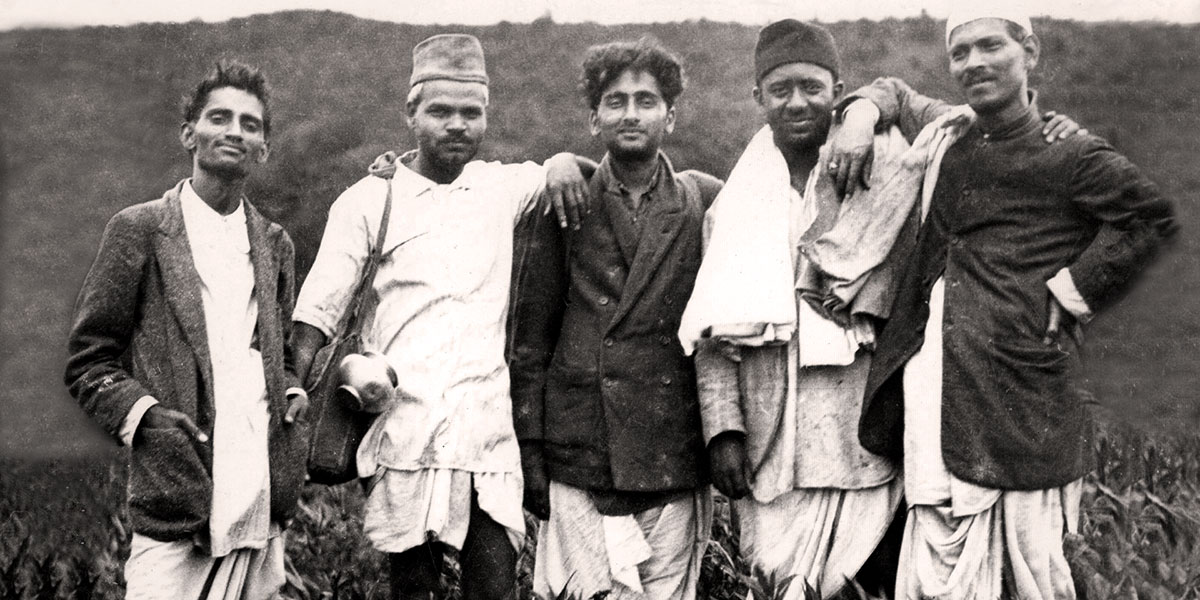
Patwardhan Gets Personal
Veteran filmmaker Anand Patwardan provided the Industry day’s other conversation highlight. The filmmaker joined Powers to discuss his Festival selection The World Is Family, a deeply moving consideration of his family’s rebellious nature and a powerful examination of India’s caste system. The film offered an intimate reflection of the impact of Patwardhan’s parents on his deeply humanist worldview.
Patwardhan looked at the acts of rebellion that have defined his own career, including smuggling his films out of the country and fighting censorship in epic multi-year legal battles in which he ultimately proved victorious while being celebrated for fearless works that challenged government policy. Patwardhan’s origin story offered a unique tale of intersections with institutions. The filmmaker noted that the only documentaries produced in India when he started were reels of government propaganda that would screen in theatres with dramatic features. After coming to Canada, though, Patwardhan honed his chops as a political filmmaker working at the National Film Board of Canada’s Challenge for Change program, as well as making NFB docs with figures like Jim Munro, who provided him with the tools and experience to tell stories back home.
The director added that his NFB roots offered a connective tissue to his filmography, as all his films stem from the same motivation: addressing working class issues, poverty, religious fundamentalism, and sectarian violence. “India is a bubble of contradictions,” Patwardhan said.
The Documentary Marketplace
Other conversations during the Industry day included the Documentary Organization of Canada’s presentation of the 7th edition of its Getting Real report on the state of documentary financing in Canada. The report, which you can read here, notes that funding for feature docs is down even though viewership is up. DOC executive director Sarah Spring and the panellists noted that the decline gives reason for concern since feature docs often provide a foot in the door for filmmakers from underrepresented communities. Meanwhile, the panellists stressed that concerns related to Bill C-11, the Online Streaming Act, should afford protections for documentary, but the docs receiving more funding (ex: lifestyle series) don’t meet the original intentions of the protection. (Read more about the DOC Getting Real panel here.)
Other conversations about the business side of things fuelled the well-attended panel “What Is the Documentary Marketplace Today?” Moderated by ABC News Studios’ Poh Si Teng, the talk included CAA’s Amanda Lebow, Autlook Filmsales’ Jason Resnick, and Double Agent’s Dana O’Keefe. The panelists generally reflected a cautiously optimistic outlook for the documentary marketplace, noting the cyclical nature of the field is in the process of recalibrating itself following a period of over-inflation where streamers threw 10-figure payouts for festival acquisitions.
Lebow noted that one major change in the field is the range of films beyond conventional notions of “documentary.” The panellists also looked to the concerning absence of sales at Sundance and observed the dwindling appetite among distributors for political docs, but Lebow pointed to the sale of D. Smith’s KOKOMO CITY, a portrait of Black transgender sex workers, as an optimistic anomaly in the field. “We saw it as a film and didn’t care what happened to it,” she said. “It had a vision and we were going to be with it throughout its life regardless of what happened to it.” The doc sold to Magnolia in the USA (and Mongrel Media in Canada), who gave it a theatrical run this summer. The panel also cited a dwindling appetite for music docs as a major change in the industry, since legacy artists invite formula and smaller bands prove too niche for the streamers.
The Music Docs
On the doc front, one could see the declining interest in music docs from the festival selections. TIFF delivered the one true dud of the festival with the Gala presentation of Hate to Love: Nickelback, for example. The documentary about the inexplicably popular Canadian rock band offered a pointlessly hagiographic portrait of the critically reviled band. Director Leigh Brooks didn’t seem remotely interested in asking the band tough questions and instead ran with their story as artists who were simply misunderstood for songs like “Something in Your Mouth.” However, in the age of docs like Listening to Kenny G, which fully embraced and confronted its subject’s cheese, Hate to Love: Nickelback was a missed opportunity to say anything meaningful about the band or to defy the haters. It embodied the kind of celebrity profile doc that doesn’t do the marketplace any favours and was, ironically, the Nickelback TIFF docs.
Alternatively, the other music doc in the Galas, Lil Nas X: Long Live Montero delivered a truly electrifying and energetic concert doc experience. The film explored Lil Nas X’s quick rise and global appeal as a queer performer who empowered a new generation of fans with his unabashed style. The significance of the doc was underscored by a bomb threat that delayed the screening, but the challenges for music docs noted in the panel were reflected in the pitiable attendance at the film’s press and industry screening. Despite being one of the Festival’s major headliners, the industry slot for Long Live Montero barely drew a handful of attendees. Which is a shame, since it was among the non-fiction highlights. Similarly, In Restless Dreams: The Music of Paul Simon proved a mixed blessing for fans only with its running time of 209 minutes.

The TIFF Docs
Alternatively, TIFF Docs selection Menus-Plaisirs Les Troisgros delivered an epic buffet of observational cinema. Clocking in at 240 minutes without burdening a viewer, save for triggering one’s appetite, the documentary showed 93-year-old master Frederick Wiseman in top form. Menus-Plaisirs used the filmmaker’s approach to durational cinema to its advantage by taking in all corners of the French restaurant La Maison Troisgros. The doc premiered to audible delight from an audience that seemed consistently engaged during the four-hour serving.
Other highlights in the programme included Claire Titley’s The Contestant, which brought the most WTF story of the year to TIFF Docs. The Contested revisited the 1998 run of aspiring comedian Tomoaki Hamatsu, aka Nasubi, on the Japanese reality show Denpa Shonen: A Life in Prizes in which he stripped naked and lived in isolation, surviving off nothing but sweepstakes prizes for a full year. The darkly funny documentary held up a mirror to the act of spectatorship, asking why audiences so frequently delight in the misery of authors. The film also raised notable questions about the ethical practices of the non-fiction sphere as Nasubi endured the after-effects of becoming a public figure under circumstances to which he didn’t fully consent. A smart distributor would pick The Contestant up quickly, as anyone with an interest in non-fiction will find lots to like.
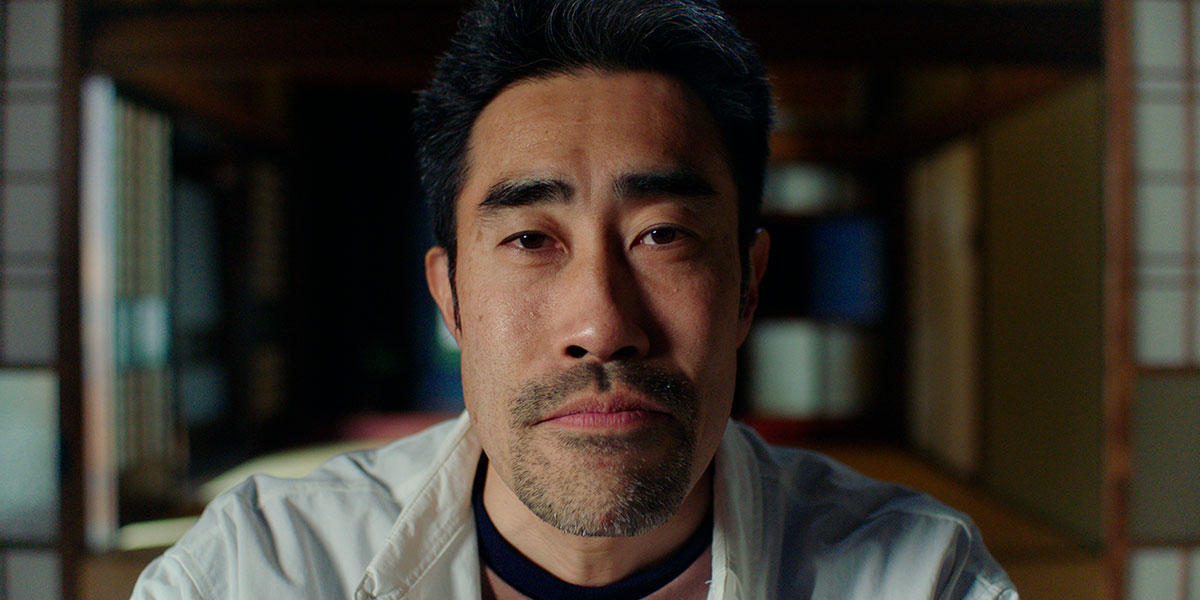
One doc that did find a home, though, was the timely #MeToo film Sorry/Not Sorry. Greenwich Entertainment scored the documentary by Caroline Suh and Cara Mones. The doc tackled the comeback of comedian Louis C.K. after his career was briefly—or barely?—paused after several women came forward with allegations that he masturbated in their presence without consent. Sorry/Not Sorry marked perhaps the most notable doc of the #MeToo era yet as several women who spoke out against C.K. got the chance to dive into their stories more deeply. Suh and Mones captured how C.K.’s return, which capitalized on his notoriety and made the women the butt of his jokes, further spoke to the limited impact of the movement in terms of inspiring lasting change. Expect lots of tough conversations inspired by this uncomfortable watch.


On the political front, TIFF Docs showed that filmmakers remain fearless in tackling the hot topics of the day even is distributors are wary of tough subjects. The festival’s world premiere of Defiant, directed by Karim Amer, brought an incendiary portrait of the fight for Ukraine as seen through the perspectives of several of President Zelenskyy’s top aides. The film invited comparison to the Oscar-nominated documentary Collective—another title praised by the documentary marketplace panel as an example of a doc that broke through the festival noise in part due to a savvy sales team that lined up the right champions—for capturing the unfolding story through all angles. Defiant delivered a necessary portrait of diplomacy in action.
Stories from the front lines of human rights crises fuelled two of TIFF Docs most innovative titles: In the Rearview and Walls. The former, directed by Maciek Hamela, captured the Ukraine story through a novel conceit in which the filmmaker drove refugees to safety, documenting their stories from the driver’s seat. The latter marked actor Kasia Smutniak’s directorial debut and brought a truly gripping thriller to the festival with her stealthy production that observed the migration crisis at the Polish-Belarusian border. Both docs showed that important topics can also inspire some of the most novel approaches to non-fiction as filmmakers adapt to the difficult circumstances of production.

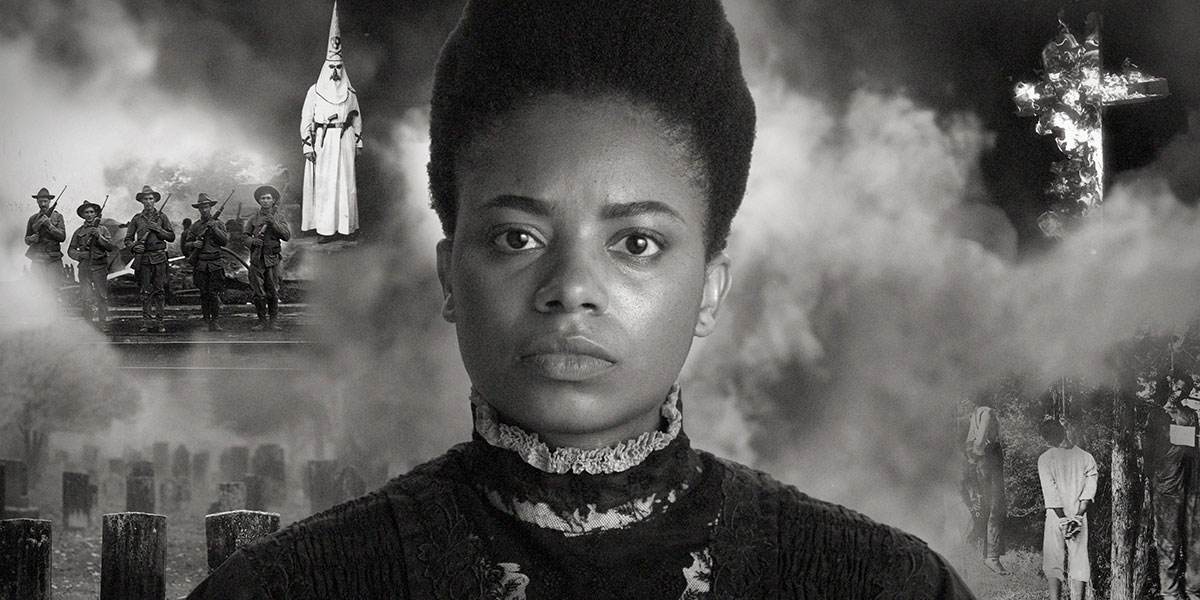
Streamers Get Political
Perhaps more surprising was the presence of two of the most overtly political docs in the line-up. Despite all the talk about distributors being wary of political films, TIFF Docs had two films that tackled potent subjects about race in America—and both were the lone titles presented by Netflix and Amazon. Netflix’s Stamped from the Beginning, directed by Rogers Ross Williams, and Prime Video’s Silver Dollar Road, directed by Raoul Peck, admittedly had two of the bigger names in the line-up. However, they demonstrated some inconsistency in industry chatter that distributors won’t touch tough subjects. Stamped from the Beginning offered an incisive overview of racism in America and the images that perpetuate inequality, while Silver Dollar Road delivered a David versus Goliath legal saga about a family’s fight to save its land. If these films can find worthy distributors, there’s no reason why the above mentioned docs should be homeless after the festival.
Less overtly political, but arguably the strongest streaming title at the Festival, meanwhile, was Errol Morris’s The Pigeon Tunnel. The AppleTV+ documentary featured the last interview with David Cornwell, aka master spy novelist John le Carré. The wide-ranging conversation tackled Cornwell’s childhood and the elements of betrayal by his family that inspired his extensive body of work. The doc proved an instant delight thanks to the clear chemistry between Morris and Cornwell. Morris engaged with Cornwell in his signature fashion, favouring an engaged conversational approach that lets a viewer appreciate the connection between director and subject. Fans of le Carré’s work will find lots to relish, while casual fans should be hooked by the great character study that Morris unfolds with just the right splash of intrigue. The polished and thoroughly engaging documentary hits AppleTV+ on October 20 and is worth keeping an eye on.

Mother of All Characters
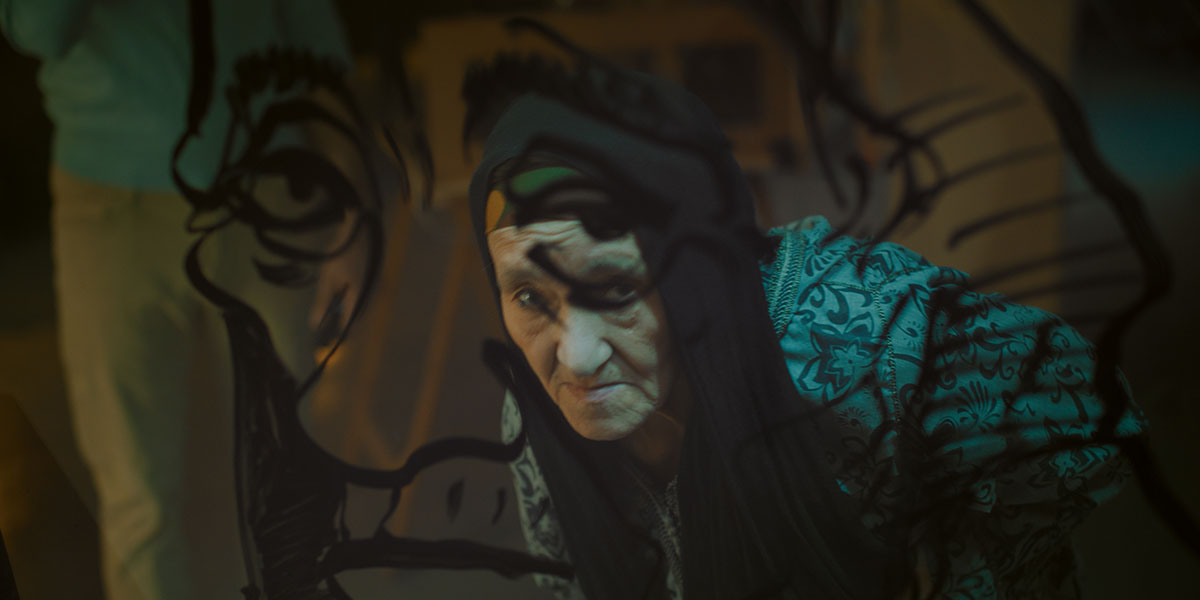
Two of the most memorable documentary characters at this year’s festival came in the pair of films that shared the l’Œil d’Or at Cannes: Four Daughters and The Mother of All Lies. Both films tackled the secrets, lies, and losses that can divide families through singular approaches. The former, directed by Kaouther Ben Hania, marked a brilliant hybrid film in which six women—three family members, three actors—confront the past through a mix of formal interviews and re-enactments. The latter, directed by Asmae El Moudir, saw the filmmaker confront her grandmother over her reluctance to discuss the past. She used miniature dioramas and figurines to stage a therapeutic interrogation of a tragic day in 1981. Both films featured remarkable women at their cores with Four Daughters offering a memorably heartfelt character in Olfa Hamrouni and her tale of loss, while El Moudir’s grandmother Zahra made the most wickedly prickly impression of the festival. (Alternatively, TIFF Docs found a much happier portrait of family in the Middle East with Lina Soualem and Hiam Abbass’s Bye Bye Tiberias.) Both Daughters and Mother were selected to represent Tunisia and Morocco, respectively, in the Oscar race for Best International Feature and should garner attention throughout the season. Also submitted was Wavelengths documentary Pictures of Ghosts, directed by Kleber Mendonça Filho. The Brazilian doc proved a highlight of the Festival’s experimental strand for its innovative study of film, place, and memory.


Another memorable TIFF Docs character came in director Chris Wilcha, who boldly turned the camera on himself in Flipside. The documentary, which was a consensus favourite among POV contributors, offered a personal exploration of growing pains and finding the sweet spot between artistic integrity and selling out while forging a career in documentary. The self-reflexive film captured personal and painful truths as Wilcha examined his own collection of stillborn documentary projects and returned to the record store where he once worked. As he fulfilled a promise to himself to make a documentary about his beloved Flipside Records, he found a larger story about what it means to cut it as an artist in a ruthless industry. The doc featured a clip of Errol Morris making commercials to fund his non-fiction career, so Wilcha should consider the festival selection a win after being in good company with Morris himself.
A career in documentary also received a fine appraisal in Viva Varda, directed by Pierre-Henri Gibert. This breezy overview of Agnès Varda’s unique filmography explored one woman’s invaluable contribution to the art-form. Admittedly, the film’s approach took a relatively conventional angle to a career that defied convention, but was nevertheless a welcome reminder of the work by a true master of the art form.
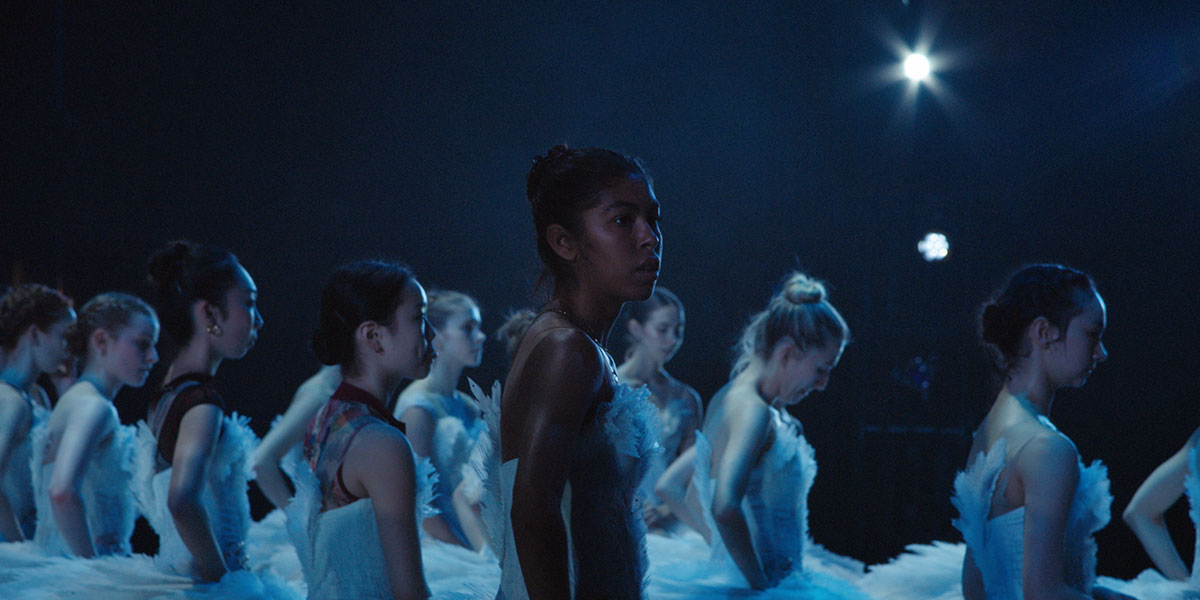
Canadian Docs
Finally, Canada had respectable showing for documentaries to do Toronto proud. Chelsea McMullan’s Swan Song, for example, delivered a dazzling backstage drama with its portrait of ballet icon Karen Kain and her farewell to the stage. Similarly, Deepa Mehta and Sirat Taneja brought a notable entry to the documentary slate with a collaborative work that gave the latter agency through storytelling as she shared her perspective as a transwoman in India. I Am Sirat joined Swan Song and fellow Canadian film Summer Qamp in a strong year for queer storytellers at the Festival. Summer Qamp proved an audience favourite for its inspiring portrait of a summer camp for queer youths.
The Festival’s big documentary winner, of course, was the infectiously enjoyable Mister Dressup: The Magic of Make-Believe. Directed by Rob McCallum, The Magic of Make-Believe celebrated Ernie Coombs and his beloved TV character who was the first teacher for generations of Canadians. Offering far more than an exercise in nostalgia, this warm and winning documentary asked what Canadians want to see reflected in their public programming. The doc offered a reminder of the days when public funding for programming in Canada allowed creators to take risks and find wide audiences. That the film made this case with a subject as seemingly innocuous as Mr. Dressup allowed the story to take one by surprise. It’s also just a genuinely moving experience. One could easily see how it scored the People’s Choice Award for documentary and will touch more hearts throughout the season. Even among the usually hardened crowds at TIFF’s press and industry screenings, Mr. Dressup inspired a good cry. It’s refreshing to see a film with such universal resonance.














